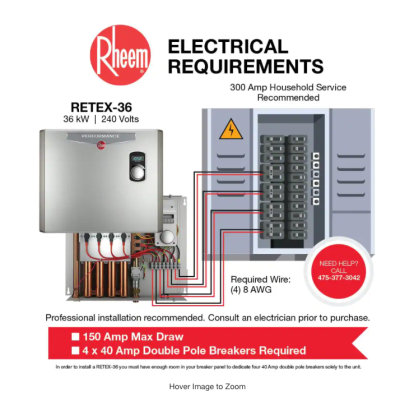Ronstar
Moderator Emeritus
Who has a tankless water heater? Gas or electric? How do you like it?
Our current Rheem water heater (tank) sprung a leak today. 20 months after it was installed as a warranty replacement of the previous tank water heater that lasted 20 months. We've had around 8 water heaters in 28 years.
I think I want to go electric tankless. Only issue is that the tankless has a larger electric need, and right now my current water heater is wired to my generator panel, which is full. I'd have to move a couple circuits from my generator panel back to my main panel, making those circuits dark when the power goes out. Oh well, seems to me a few hours of electrical work now would make sense to avoid future tank leaks.
And of course I'd like the tankless to be a warranty replacement, installed by Rheem's plumber. I would supply the upsized electric.
Our current Rheem water heater (tank) sprung a leak today. 20 months after it was installed as a warranty replacement of the previous tank water heater that lasted 20 months. We've had around 8 water heaters in 28 years.
I think I want to go electric tankless. Only issue is that the tankless has a larger electric need, and right now my current water heater is wired to my generator panel, which is full. I'd have to move a couple circuits from my generator panel back to my main panel, making those circuits dark when the power goes out. Oh well, seems to me a few hours of electrical work now would make sense to avoid future tank leaks.
And of course I'd like the tankless to be a warranty replacement, installed by Rheem's plumber. I would supply the upsized electric.

